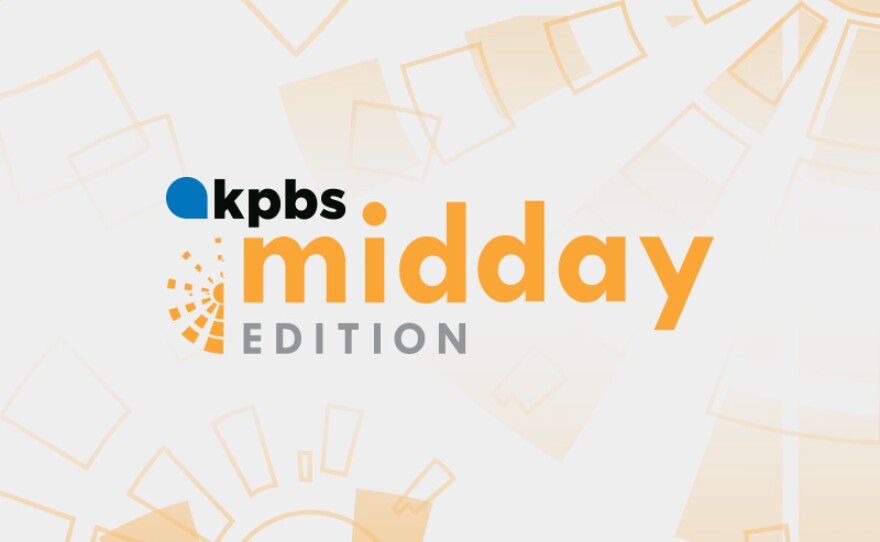California Launches Program To Protect Transgender Voting Rights
Speaker 1: 00:00 With California's March presidential primary election. Approaching a new initiative aims to boost LGBTQ participation in 2020 secretary of state, Alex Pedea announced a first of its kind partnership with the civil rights organization, equality California to train poll workers to make it easier for transgender and gender nonconforming voters to cast ballots equality. California executive director Rick Zabir joins us now. Rick, welcome. Good afternoon. So Rick, I want to talk about what's included in this partnership that your group will actually help create the training program for. But first I'd like for you to describe to me what some LGBTQ voters have experienced when they arrived to the polls to vote. Speaker 2: 00:45 Well. Um, you know, especially with transgender and gender nonconforming voters, um, often, um, their appearance, um, doesn't seem to match what it's on the voter rolls. And so, um, you know, we've had reports of, um, individuals being hassled, um, uh, you know, asked lots of questions, uh, being required to show a whole host of different kinds of ID, which is not required in the state of California. Um, and generally made, you know, voting and unpleasant experience. And so, uh, really this program is, you know, intended to make sure that every eligible transgender and gender nonconforming voter has the opportunity to cast a ballot and do so, um, you know, feeling respected and, uh, without, uh, obstacles that, um, you know, that they might otherwise face. Speaker 1: 01:40 Does that experience suppress the LGBTQ Speaker 2: 01:43 move out? I think any time you make it harder to vote, uh, or you have an unpleasant experience doing anything, it's just human nature that some people will walk away. And so, um, you know, this program is intended to educate poll workers about, um, how they should, um, you know, treat, uh, transgender people and gender nonconforming people with respect and really follow the rules in California. Um, uh, when, you know, someone shows up to the polls. So what will this program look like? So there will be a training program that the secretary of state's office will, um, put together a to train, you know, all poll workers in California in advance of the March, uh, primary in California and a quality California Institute will be working with, uh, the secretary of state's office on developing the content. Um, really educating poll workers on what sexual orientation is, what gender identity is of why using the appropriate pronouns that a person chooses is important. Speaker 2: 02:50 But really having, um, I sort of call it LGBTQ one Oh one, the basic information about how you treat members of the LGBTQ and transgender and gender nonconforming people in particular. Respectfully. Is this program being implemented statewide in every County? It is. This is a statewide program. It's being administered by the secretary of state's office. I know that he's actually in discussions now about the details of how that will be implemented, but the intention is that this would be implemented statewide prior to the March primary. And how many voters would this partnership impact? Well, you know, it's hard to say. Um, we know that transgender, uh, that about 0.7, 6%, just under 1% of Californians identify as being transgender. Um, that also doesn't pick up gender nonconforming people, which would make that number higher. Um, we also know from an internal, from a statewide poll that equality California commissioned about three years ago, that LGBTQ people tend to be a registered to vote in higher numbers than the population, um, than our percentage of the population. Speaker 2: 04:02 Um, a statewide fold that we commissioned indicated that about 12% of California registered voters identify as members of the LGBTQ community. Um, you know, most estimates of our percentage and the general population range from four to 9%. So we know we're registered and, uh, more civically engaged then the general public. What should someone do if they feel they've been disenfranchised? If someone has, has been turned away from the pole or is, you know, uh, is having a problem voting, um, they should ask for a number at the polling site of where they can sort of report that if they're a member of the LGBTQ community, they should, they can call equality California and we will give them information about what they should do to vote. Um, and then, uh, at worst case, I think if you're being, if someone has not, has been turned away, they should ask for a provisional ballot, um, and asked to vote anyway. Speaker 2: 04:57 And then of course, that information will be tracked and at least their vote will be registered. And California is the first state to provide training materials promoting best practices for poll workers who engage with transgender or non-binary voters. Do you think other States will follow? I hope so. Um, I know that, uh, that the program that secretary Pedea and equality California announced is something that has received a lot of national attention. It is the first, other than the kind, uh, in the country at least, um, you know, being implemented on a statewide basis. We know some other jurisdictions, I think including in California at the local level, have done some education, uh, for their poll workers and some municipal elections. But this is the first time that there's been a statewide program and we're hoping that this will be a model for secretaries of States and other States to follow it. I've been speaking with executive director of equality California, Rick [inaudible]. Rick, thanks so much for joining us. You're welcome. Thank you for covering this important topic.


